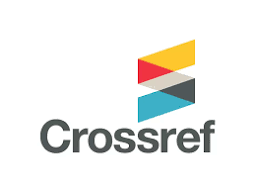Diagnostic Cytological Yield with and without Ultrasound Guided Fine Needle Aspiration Cytology in Salivary Gland Lesions
Keywords:
Salivary gland tumors, Fine Needle Aspiration Cytology, FNAC, Ultrasound guided FNAC, Cytology, Diagnostic yieldAbstract
Background: Fine Needle Aspiration Cytology is most commonly used primary diagnostic procedure in the
salivary gland lesions. It is minimally invasive, well tolerated, rapid, and inexpensive with a high diagnostic
accuracy. Fine needle aspiration cytology is sometimes done with the assistance of ultrasonography. Ultrasound
guided fine needle aspiration cytology is comparatively more time consuming and costly procedure.
Objective: Compare and correlate the diagnostic cytological yield of conventional method of fine needle
aspiration cytology with ultrasound guided fine needle aspiration cytology in salivary gland swellings in order to
determine if ultrasonography has substantial advantage to justify additional cost and time.
Materials & Method: Random selection was used. Half of the randomized patients underwent Fine Needle
Aspiration Cytology without help of ultrasonography and the other half underwent ultrasound guided Fine
Needle Aspiration Cytology. A cell block was also processed for histology. Histopathological correlation with the
surgical specimen was done in cases where surgical excision was carried out. All the stained cytological and
histological slides were analyzed and compared. Data was computerized with window Statistical Package of
Social Sciences version 22.
Results: The mean age of the study population was 40.44±16.08 years. The male to female ratio was 1.16:1. The
sample size was 65. The parotid gland was involved in 38 (58.6%) patients, submandibular gland in 21 (32.3%)
patients, submental gland in 2 (3.1%) patients and minor salivary gland was involved in 4 (6.2%) patients. The
sensitivity of ultrasound guided fine needle aspiration cytology was 100% with specificity of 82.8%, Positive
Predictive Value of 75%, Negative Predictive Value of 100% and diagnostic accuracy was 84.8% taking
histopathology as gold standard. The sensitivity of conventional fine needle aspiration cytology was 80% with
specificity of 96.3%, Positive Predictive Value of 100%, Negative Predictive Value of 96.3% and diagnostic
accuracy was 93.75% taking histopathology as gold standard.
Conclusion: Fine needle aspiration cytology without additional ultrasound guidance should be used routinely
for the diagnosis of salivary gland lesions as it will save the time and decrease the cost of the test with a high
diagnostic accuracy.
Downloads
Published
Issue
Section
License
Copyright (c) 2018 Tahmina Gul, Aafrinish Amanat, Rabia Naseer, Khalid Mehmood

This work is licensed under a Creative Commons Attribution-NonCommercial 4.0 International License.
Readers may “Share-copy and redistribute the material in any medium or format” and “Adapt-remix, transform, and build upon the material”. The readers must give appropriate credit to the source of the material and indicate if changes were made to the material. Readers may not use the material for commercial purpose. The readers may not apply legal terms or technological measures that legally restrict others from doing anything the license permits.

